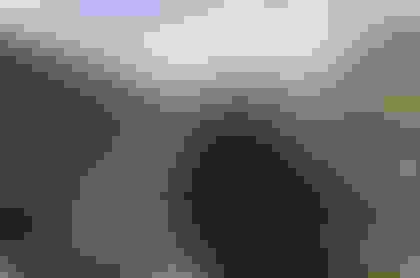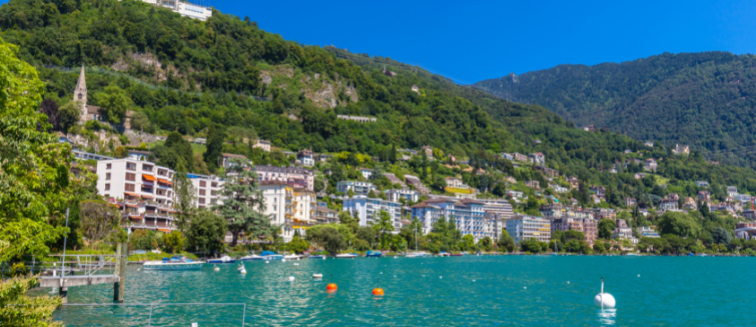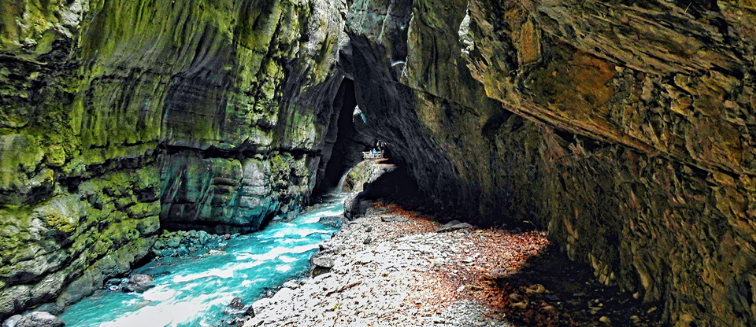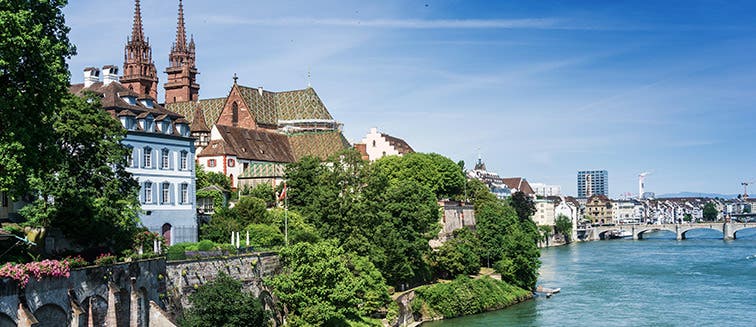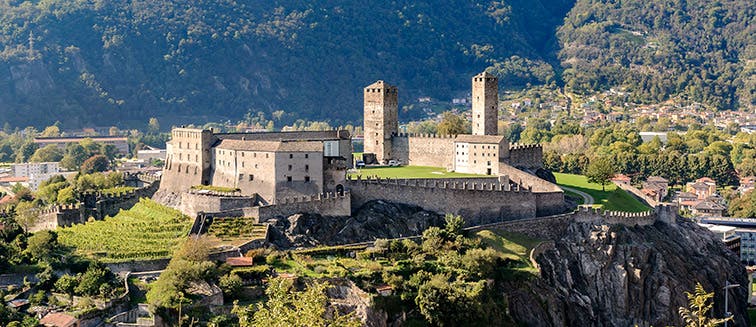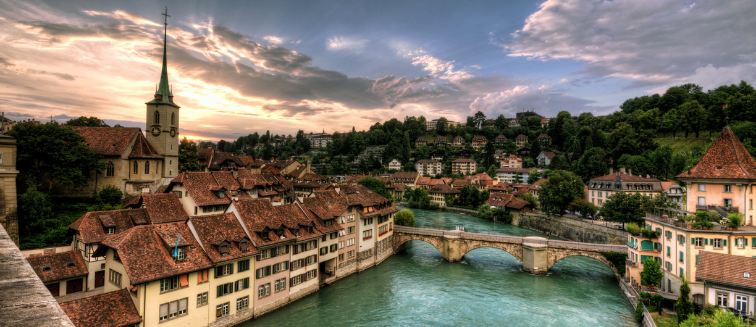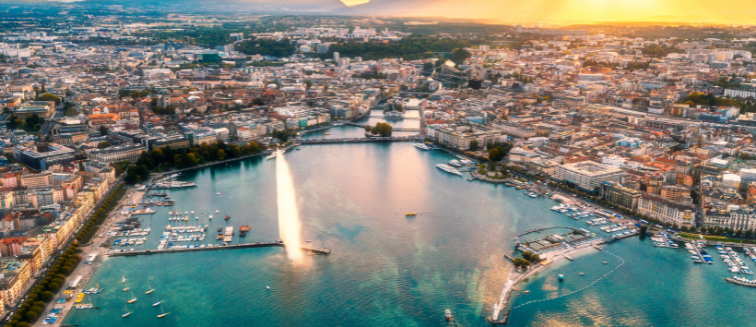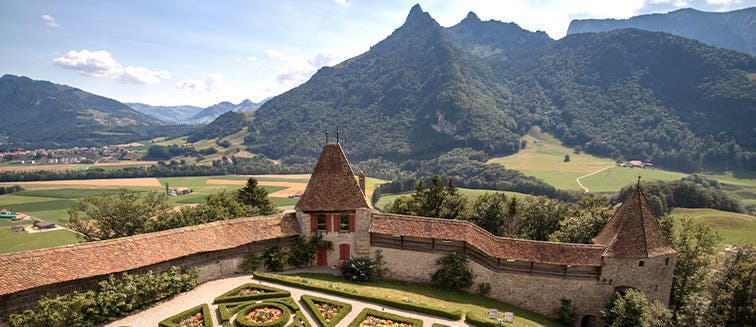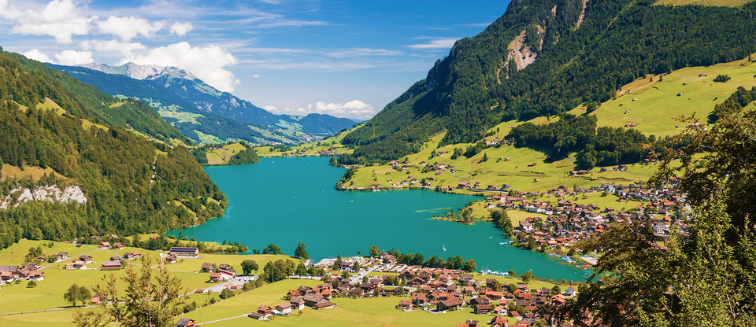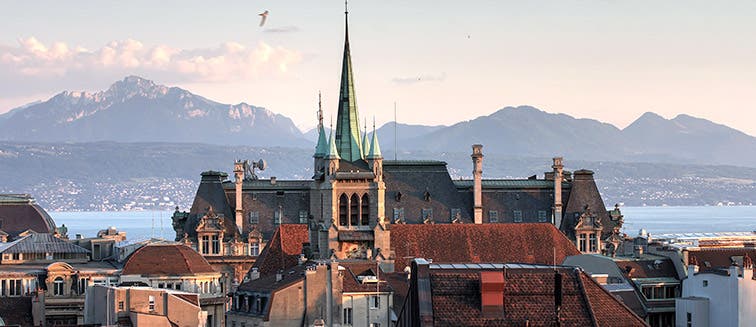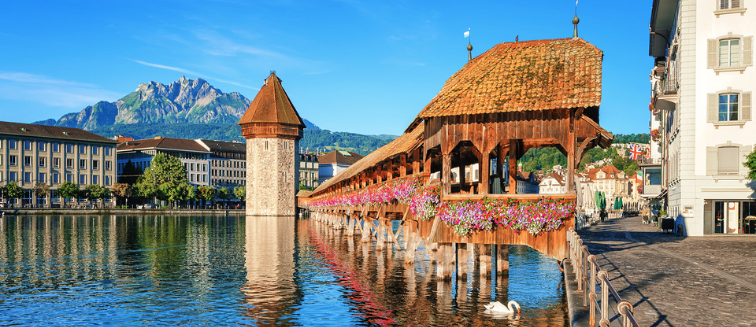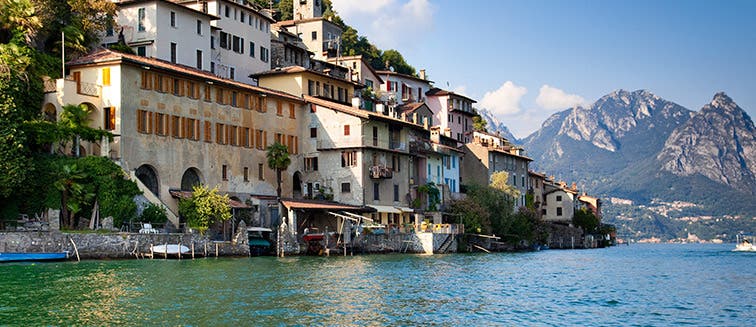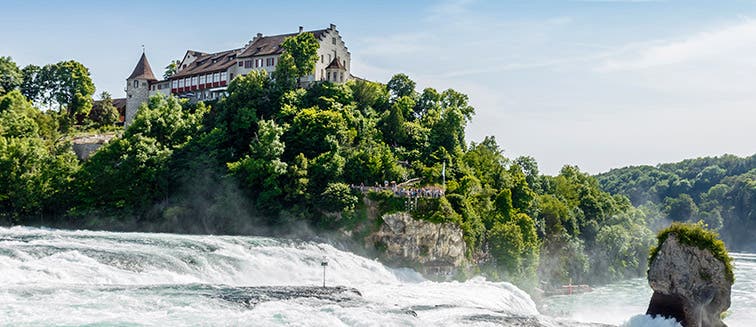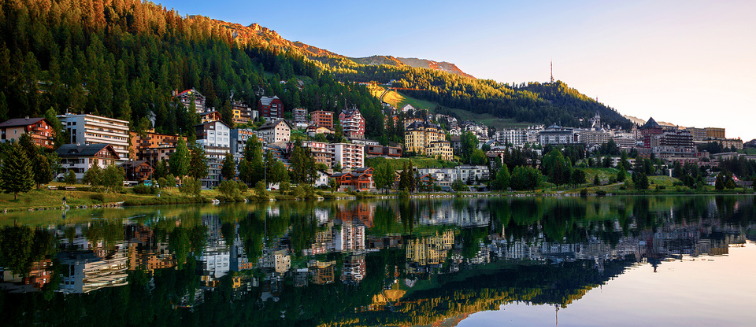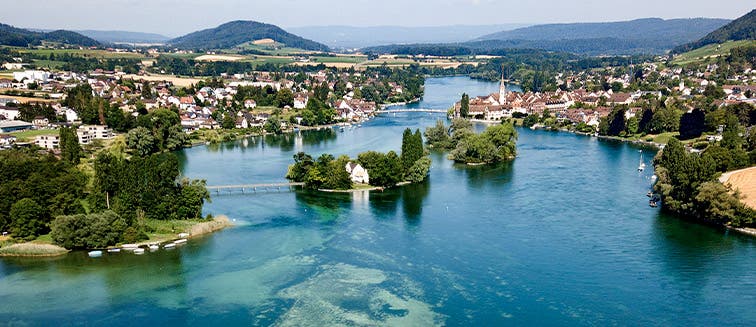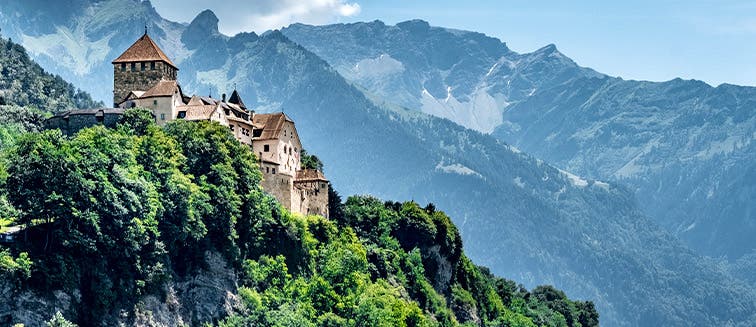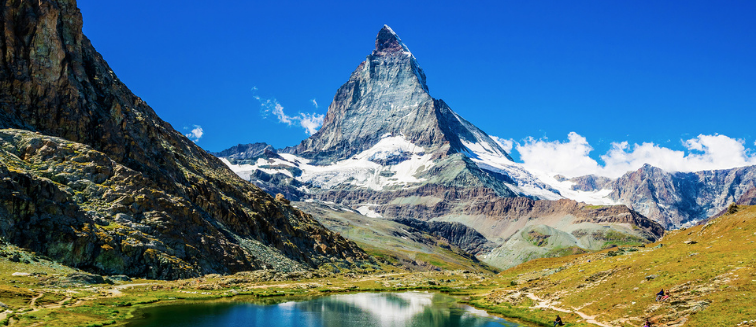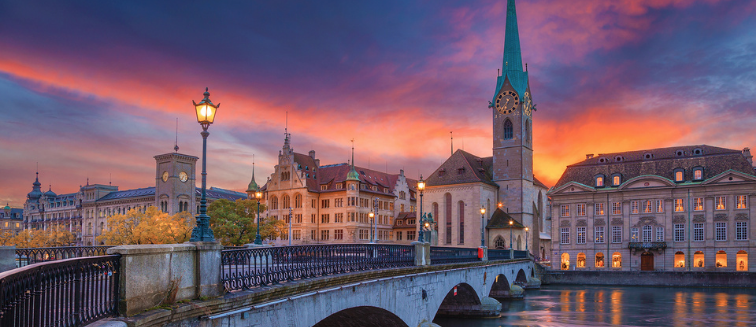A small country, known for its breathtaking Swiss Alps, a trip to Switzerland is the chance to experience some of the most pristine landscapes in Europe. Landlocked by France, Austria, Germany, Italy and Liechtenstein, this small country is a major skiing and winter sports destination.
Nevertheless, if you visit Switzerland you’ll also find it’s the perfect choice for a cultural trip. Switzerland is home to a unique fusion of European influences, combining French, German and Italian culture. Therefore, a tour of Switzerland reveals a unique travel destination where you can experience a wealth of European culture in one, compact country.
Not just snow-capped mountains and glacial lakes, Switzerland is home to several cosmopolitan cities, such as the capital of Bern, idyllic Geneva, Germanic Basel and the financial centre of Zurich. Whilst the Alps, Jura Mountains and Bernese Highlands dominate the country, the population of Switzerland is concentrated in the Swiss Plateau.
A Switzerland vacation allows you to experience both quaint Alpine traditions in authentic timber villages and soak up the atmosphere of some of the most wealthy destinations on earth. As one of the richest countries, a trip to Switzerland can be a little expensive, but don’t forget: nature is free, and the jaw-dropping landscapes are more than worth it!
Switzerland is a year-round travel destination, whether you’re skiing in the winter or prefer hiking and biking once the pastures turn emerald green in the summer. Geneva, Basel and Bern are travel destinations in their own right, offering a rich array of sightseeing opportunities including ancient cathedrals, Roman ruins and medieval architecture.
History of Switzerland
Like much of Europe, Switzerland’s history is a story of conquerors, invasions and independence. The territory of Switzerland came under the Roman Empire in the early centuries, and you can see the remnants of this era at the 2nd-century Augusta Raurica amphitheatre and archaeological site near Basel if you take a tour of Switzerland. By the late medieval period, following the 1291 Federal Charter, the Old Swiss Confederacy was established, an agreement between small states within the Holy Roman Empire which would become a precursor to modern Switzerland.
Following the Peace of Westphalia in 1648, Switzerland became an independent state and has been a unified nation ever since. Switzerland is well-known for its neutrality and has not fought in an international war since 1815, following the Napoleonic Wars.
In modern times, Switzerland remained neutral throughout both world wars and avoiding the invasions suffered by its European counterparts. Instead, this unique nation focused its efforts on peacebuilding and humanitarian aid, establishing the now global Red Cross in 1863. Visit the Palais des Nations in Geneva, the seat of the United Nations since 1966, on a tour of Switzerland to discover Switzerland’s commitment to international diplomacy and neutrality.
Nature in Switzerland
Despite the allure of Switzerland’s cosmopolitan cities and quaint Alpine villages, most choose to travel to Switzerland for its vast open spaces and captivating natural landscapes. Home to around 1,500 lakes, dramatic glaciers and 50 mountains measuring over 4,000 metres, Switzerland is a land of jaw-dropping panoramas. The county enjoys a temperate climate, but the weather varies as you explore the diverse altitudes. In fact, you could easily experience spring, summer and winter all in one day if you head into the mountains of Switzerland!
Bursting with natural wonders, a vacation to Switzerland is sure to include a good deal of time in the great outdoors. From the iconic Matterhorn, the best-known pyramid-shaped peak in the Swiss Alps and famously the face of Toblerone, to Lake Geneva, the largest lake in Europe, Switzerland is brimming with must-see natural sights.
The Swiss National Park is one of the best places to visit in Switzerland. The only national park in the country, this 172 square-kilometre natural reserve is filled with a collection of mountains, lakes, glaciers and woodlands. It’s the best place to soak up the landscapes that characterise Switzerland and is filled with hiking trails, footpaths and unforgettable viewpoints.
Other natural highlights to see on a trip to Switzerland include Monte Rosa, the highest mountain in the country, the magical Rhine Falls, the largest waterfall in Europe, the mirror-like Lake Oeschinensee and the Aletsch Glacier.
Culture in Switzerland
A few cliche things come to mind when thinking about the culture of Switzerland: cuckoo clocks, yodelling and chocolate! Of course, you’ll find all these cultural icons if you travel to Switzerland, and there’s no doubt that Switzerland is a paradise for chocolate lovers. Take the master chocolatiers of Teusher and Sprungli in Zurich for example.
Nevertheless, Swiss culture is characterised by its diversity. The county has four official languages: French, German, Italian and Romansch. You’ll find that German is the most widely spoken, but the popular travel destination of Geneva, Jura and Vaud are largely French-speaking. On the other hand, if you visit the southern region of Ticino, you’ll hear Italian and in Graubunden, you’ll find Romansch is the language of choice.
The Alps have shaped Swiss culture, and you can still experience the rich folk arts of alphorn and yodelling if you venture into the highlands. In the urban environment, Switzerland stands out for its amazing Romanesque architecture, seen most prominently in Basel, Chur and Geneva.
Furthermore, modern Swiss culture is all about innovation, especially in the fields of design and architecture. Throughout the country’s major cities you’ll find an eclectic array of galleries and museums, making a trip to Switzerland a great choice for lovers of the arts and culture.


